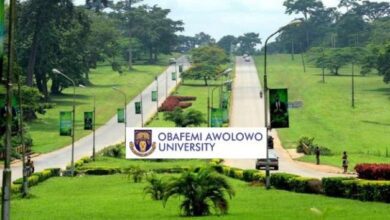Christian Religious Studies and Geography Education in Nigeria

Christian Religious Studies (CRS) and Geography education in Nigeria form a significant part of the country’s educational landscape, offering students a diverse and enriching learning experience.
As prospective students navigate their educational choices, several common questions arise regarding these fields of study.
In this article, we will explore the intricacies of Christian Religious Studies and Geography education, shedding light on the JAMB subject combination and the curriculum in Colleges of Education across the country.
JAMB Subject Combination for Education and Religious Studies
The Joint Admissions and Matriculation Board (JAMB) subject combination for education and religious studies typically includes English Language, Religious Studies, and any two subjects from Arts, Social Sciences, or Sciences.
This well-rounded combination ensures that aspiring educators receive a comprehensive foundation, equipping them with the necessary skills and knowledge for their future careers.
Courses Studied in Colleges of Education
In Colleges of Education, students pursuing education and religious studies delve into a diverse curriculum.
Alongside core subjects related to religious studies and pedagogy, students explore courses such as Philosophy of Education, Sociology of Education, and Comparative Education.
These courses provide a holistic understanding of the education sector, preparing students to become proficient educators and mentors.
The subject of Religious Studies
Religious Studies, as a subject, encompasses the study of various religions, their beliefs, practices, and influence on society.
In the context of Nigeria, the focus often includes Christianity and Islam, given their prevalence in the country.
Studying religious studies promotes tolerance, understanding, and cultural awareness among students, fostering a spirit of harmony and respect for diversity.
Role of Colleges of Education
A College of Education plays a crucial role in shaping the future of education in Nigeria.
These institutions serve as training grounds for prospective teachers, equipping them with knowledge, skills, and pedagogical techniques.
Colleges of Education emphasize practical teaching methods, encourage research, and foster innovation in the field of education.
By nurturing educators, these institutions contribute significantly to the overall development of the nation.
Polytechnics Offering Christian Religious Studies and Geography Education
1. Federal Polytechnic, Ado-Ekiti
Federal Polytechnic, Ado-Ekiti, stands as a beacon of education in Nigeria, offering comprehensive programs in Christian Religious Studies and Geography education.
With a dedicated faculty and state-of-the-art facilities, the institution provides an interactive learning environment.
Students benefit from practical teaching exercises and real-world applications, ensuring they are well-prepared for their teaching careers.
2. Kaduna Polytechnic
Situated in Kaduna State, Kaduna Polytechnic is renowned for its commitment to education and geographical studies.
The institution emphasizes research-based teaching methodologies, encouraging students to explore innovative approaches to geography education.
The curriculum includes in-depth studies in both geography and religious studies, enabling students to develop expertise in these areas.
3. Yaba College of Technology
Yaba College of Technology, located in Lagos State, offers a vibrant learning experience in Christian Religious Studies and Geography education.
The college stands out for its practical approach to teaching, incorporating real-world scenarios and hands-on experiences into the curriculum.
Students here benefit from a rich academic environment and expert guidance from experienced educators.
4. Federal Polytechnic, Nekede
Federal Polytechnic, Nekede, situated in Imo State, is a hub for education enthusiasts.
The institution focuses on holistic development, nurturing students’ academic, social, and professional skills.
The religious studies and geography education programs at Nekede Polytechnic are designed to prepare graduates for the challenges of the modern education landscape.
FAQs
What are the admission requirements for Christian Religious Studies and Geography Education in Nigeria?
To be admitted into this program, candidates must have at least five credits in their O’Level results, including English Language, Geography, Christian Religious Studies, and two other relevant subjects. A good score in the Unified Tertiary Matriculation Examination (UTME) is also required, with Geography and CRS typically being compulsory UTME subjects.
What career opportunities are available for graduates of Christian Religious Studies and Geography Education?
Graduates can pursue careers in teaching at secondary schools or higher institutions, work in religious organizations, or become consultants in educational fields. They can also find opportunities in environmental management, geographic information systems (GIS), and community development roles.
How long does it take to complete a degree in Christian Religious Studies and Geography Education in Nigeria?
The program typically takes four years for students entering with a Senior Secondary School Certificate (SSCE) or equivalent. Students with a National Certificate in Education (NCE) may complete the course in three years through direct entry.
Can I pursue postgraduate studies after obtaining a degree in Christian Religious Studies and Geography Education?
Yes, graduates can pursue postgraduate studies in either Christian Religious Studies or Geography or specialize in educational management, curriculum development, or religious studies. This opens up additional career opportunities in academia and research.
Also Read: Christian Religious Studies and French Education in Nigeria





